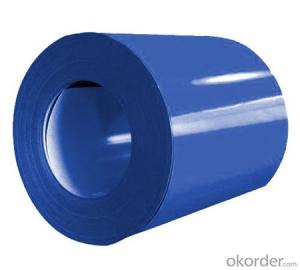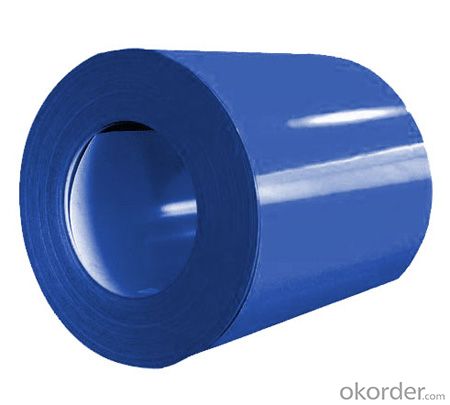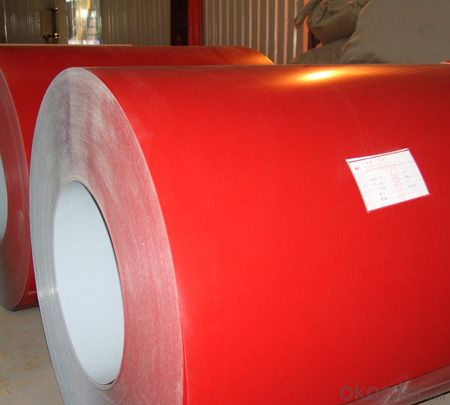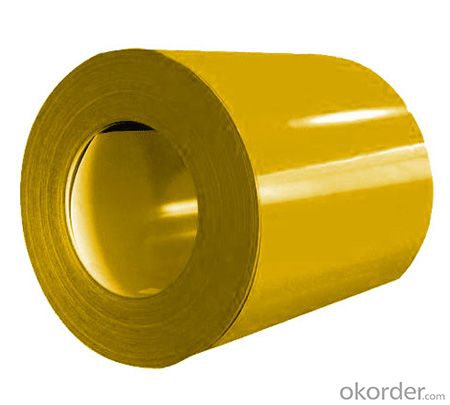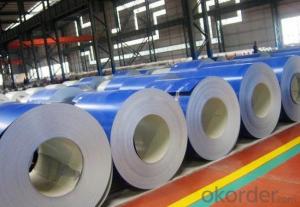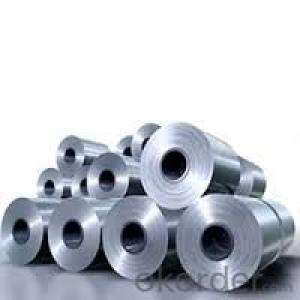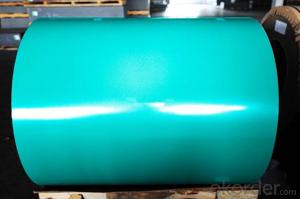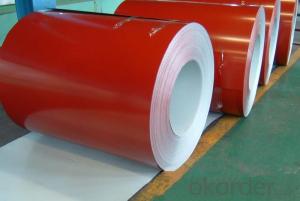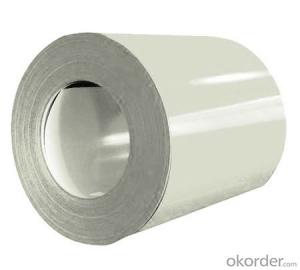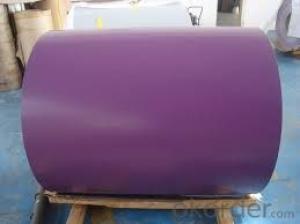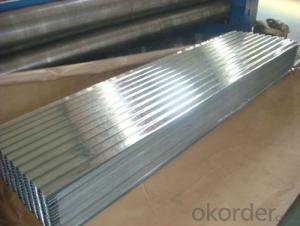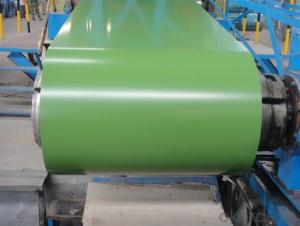Prepainted Galvanized Steel Coil -CGCC Our Best
- Loading Port:
- China main port
- Payment Terms:
- TT OR LC
- Min Order Qty:
- 50 m.t.
- Supply Capability:
- 15000 m.t./month
OKorder Service Pledge
OKorder Financial Service
You Might Also Like
Prepainted Galvanized Steel Coil -CGCC Our Best
1. Structure of Prepainted Galvanized steel Coil-CGCC:
•Prepainted galvanized steel qualified with excellent decorative ,formability ,corrosion resistance ,coating adhesion ,can keep for a long time as well as maintain fresh color .For color coated steel sheet can obtain good economic benefit by steel belt wood ,efficient in construction and save energy ,prevent pollution etc.
2.Main Features of Prepainted Galvanized steel Coil-CGCC :
• Smooth and flat surface
• Workability, durability
• Excellent heat resistance performance
• High strength
• Good visual effect
3.Prepainted Galvanized steel Coil-CGCC Images
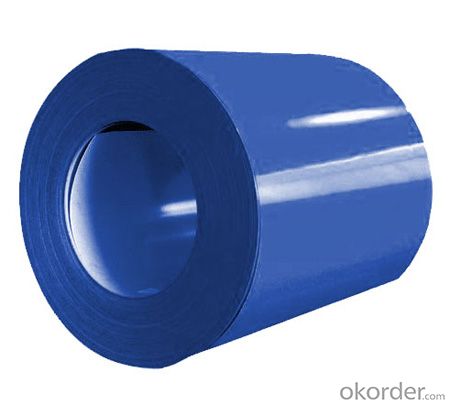
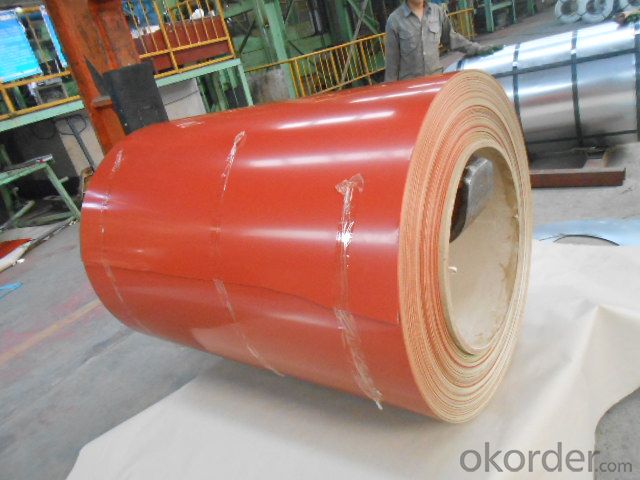
4.Prepainted Galvanized steel Coil-CGCC Specification
Standard: ASTM, GB,JIS,JIS G3302 ASTM 755 EN10169
Grade: DX51D CGCC CS
Thickness: 0.18mm~1.2mm,
Width:600-1250mm
Coil weight:3-12 MT
Coil ID:508/610mm
5.FAQ of Prepainted Galvanized steel Coi-CGCC
We have organized several common questions for our clients,may help you sincerely:
1.How do you control your quality
We have established the international advanced quality management system,every link from raw material to final product we have strict quality test;We resolutely put an end to unqualified products flowing into the market. At the same time, we will provide necessary follow-up service assurance.
2.how long we will receive the goods ?
After receiving your deposit or workable lc ,our normal shipment date is 15-20days,and it takes around 28 days to reach your port of destination. But is up to different destination
- Q: I found this amazing kid on youtube - is he using nylon or steel strings?(I'm buying my first guitar! helpp)oh and is fingerstyle also possible in steel string guitar? does it hurt?(I might sound really stupid-..)thanks a lot
- Once you LEARN how to play a guitar.. you will know just how stupid that question sounded. CLASSICAL guitars use NYLON STRINGS and ACOUSTIC guitars use STEEL STRINGS and either type of string will make your fingers sore until you get some ca louses on them
- Q: I live in the Black Hills and I need to re-side my cottage. I like the look of vinyl. I've heard pros and cons about both steel and vinyl. Is steel really that easy to dent? It just doesn't look as 'clean' as vinyl. Also what 3 color combos do you like? My cottage has shutters.
- I'd like to know why you need to re-side it. I would get vinyl because it will not need painting as soon as steel.
- Q: Does anyone know the lyrics to steel driving man by Dailey and Vincent. I would really appreciate it
- I okorder /
- Q: Will a stainless steel mesh screen scratch a titanium cup, or vice versa?I have a titanium french press and am thinking about replacing the included press with an all steel one. I am worried about little flakes of titanium or steel getting ground off into the coffee when the press slides in and out. The original press has a polyester cloth for a screen, so nothing scratches.
- Steel is usually harder than titanium, at least when both materials are hear-treated to give their best strengths. And a harder material can scratch a softer one. So I imagine that the answer is that it will scratch. However much of the rest of your question is unclear and it may be that the amount of friction between the two is so small that no wear will take place, so there could be no problem. The function of the polyester cloth may be vital in reducing this friction, so that unless you keep this part of the original design, the scratching will become worse no matter which combination of metals are used.
- Q: What are the common certifications required for steel coils?
- The common certifications required for steel coils depend on the specific industry and application of the coils. However, there are several widely recognized certifications that are commonly required. 1. ISO 9001: This certification ensures that the manufacturer has implemented a quality management system that meets international standards. It verifies that the manufacturer has the necessary processes and controls in place to consistently produce high-quality steel coils. 2. ISO 14001: This certification focuses on environmental management systems. It ensures that the manufacturer is committed to minimizing its environmental impact and reducing waste in the production process. 3. ISO 45001: This certification pertains to occupational health and safety management systems. It ensures that the manufacturer has implemented measures to protect the health and safety of its employees and stakeholders. 4. ASTM International Standards: The American Society for Testing and Materials (ASTM) has established various standards for steel coils. These standards cover aspects such as chemical composition, mechanical properties, and dimensional tolerances. Compliance with these standards ensures that the coils meet the specified requirements and are suitable for their intended use. 5. EN Standards: The European Committee for Standardization (CEN) has developed a set of standards for steel coils, known as EN standards. These standards cover similar aspects as ASTM standards but are specific to the European market. 6. JIS Standards: The Japanese Industrial Standards (JIS) are widely used in the steel industry in Japan and other countries in Asia. Compliance with JIS standards ensures that the coils meet the specific requirements of the Japanese market. 7. Product-specific certifications: Depending on the application of the steel coils, additional certifications may be required. For example, if the coils are intended for automotive use, certifications such as ISO/TS 16949 (Quality Management Systems for the Automotive Industry) may be necessary. It is important to note that the specific certifications required may vary depending on the region, industry, and customer requirements. Manufacturers should consult with their customers and industry standards organizations to determine the exact certifications necessary for their steel coils.
- Q: What are the common coil surface treatments?
- Some common coil surface treatments include galvanizing, painting, and powder coating. These treatments help protect the coil from corrosion, improve its appearance, and increase its durability.
- Q: I am reading the book The Cure For All Advanced Cancers by Hulda Regehr Clark.She writes for example: cancer can be caused by exposure to heavy metals, like nickel and chromium from stainless steel cookware. Stainless steel cookware releases chromium and nickel, two of the most carcinogenic metals.Are there any studies done measuring how much nickel and cadmium can be released from the regular use of stainless steel cookware?Is this a commonly accepted opinion that use of stainless steel cookware is dangerous?If not stainless steel, what kind of cookware to use? I heard that non-stick cookware also releases some harmful chemicals.
- perfluorooctanoic acid is a chemical used to make nonstick cookware. It has been shown to cause cancer in lab animals. The epa has asked companies that use that chemical to phase it out of the cookware, just in case. But it has not been shown to cause cancer in humans. Stainless is not known to cause any type of health problems. Cast iron is healthier and anodized aluminum is great too.
- Q: What are the common methods of inspecting steel coils for defects?
- There are several common methods used for inspecting steel coils for defects. These methods include visual inspection, ultrasonic testing, magnetic particle inspection, and eddy current testing. Visual inspection is the most basic method and involves physically examining the surface of the steel coil for any visible defects such as cracks, dents, or surface irregularities. This method is usually the first step in the inspection process and can quickly identify any obvious defects. Ultrasonic testing is a more advanced method that uses high-frequency sound waves to detect defects within the steel coil. A probe is used to transmit ultrasonic waves into the coil, and any internal flaws or defects will reflect the sound waves back to the probe. This method is effective for detecting defects such as voids, cracks, or inclusions within the material. Magnetic particle inspection is another commonly used method for inspecting steel coils. This technique involves magnetizing the coil and then applying iron particles to the surface. Any defects or cracks will cause a disturbance in the magnetic field, attracting the iron particles and making them visible. This method is particularly effective for detecting surface cracks or defects. Eddy current testing is a non-destructive method that uses electromagnetic induction to detect defects in the steel coil. A probe is used to generate an alternating magnetic field, and any changes in the electrical conductivity or magnetic permeability of the material due to defects will produce eddy currents. These eddy currents can be measured and analyzed to identify defects such as cracks, voids, or changes in material properties. Overall, these common methods of inspecting steel coils for defects provide various levels of accuracy and sensitivity, allowing for thorough inspections to ensure the quality and integrity of the steel coils. The choice of method depends on factors such as the type and size of defects to be detected, the required level of inspection accuracy, and the cost and time constraints of the inspection process.
- Q: Question about steel type used in bridges.?
- Do you mean galvanized steel?
- Q: how do i quinch steel? i heard instead of water oil will actually make it harder... wat ways are best for wat steels? and how do i tell wat kind of steel i have?... i will be doin this with my poket knife..
- boy what a though question ! let me explain. when you rapidly cool a steel from high temperatures(depending on steel type) with water or oil or other means , it is called quenching. it depends on the steel type to say if it is better to quench it with oil or water but basically in water you will have a harder steel rather than oil. for some steels if you do this you will ruin it's properties ! you can't totally tell what kind of steel do you have until you get it analyzed with Quantometer analyzer with a pocket knife it is more like an estimation and it can't be trust able generally if you can scratch the steel with your knife it means it is not a hard steel and it might not be expensive. I hope that helps but for more information i need to know more !
Send your message to us
Prepainted Galvanized Steel Coil -CGCC Our Best
- Loading Port:
- China main port
- Payment Terms:
- TT OR LC
- Min Order Qty:
- 50 m.t.
- Supply Capability:
- 15000 m.t./month
OKorder Service Pledge
OKorder Financial Service
Similar products
Hot products
Hot Searches
Related keywords
